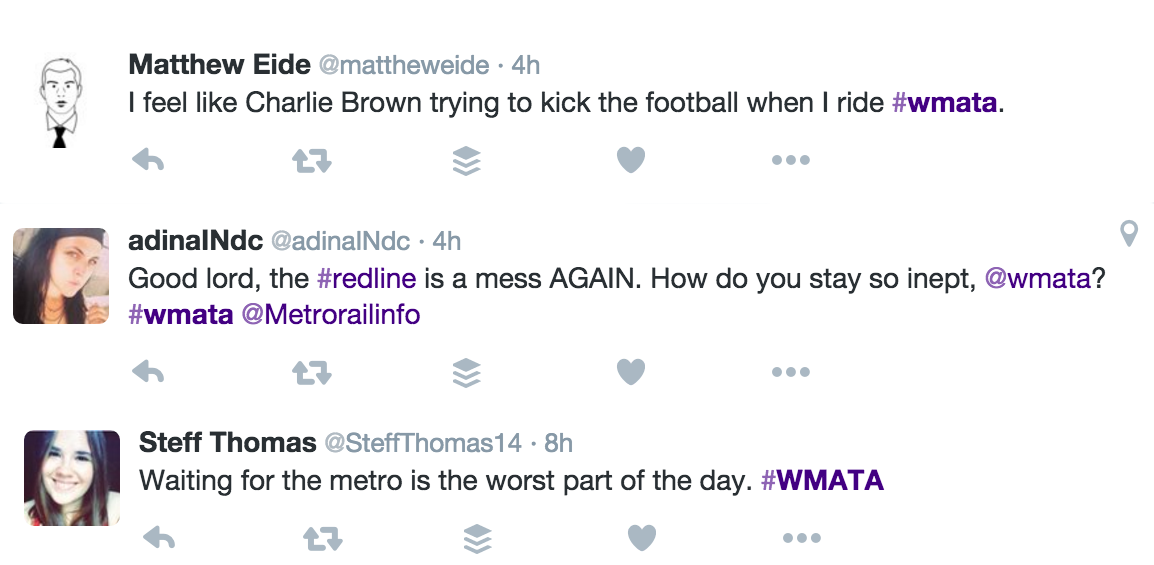For their own good, transit agencies need to start feeding the Twitter trolls.
That’s because transit agencies can change the way people talk about them on social media simply be responding.
University of Southern California professor Lisa Schweitzer found that people on Twitter aren’t, exactly, singing transit’s praises. They speak more negatively about public transit than they do about even airlines.
And there’s an ugly dynamic to the tweets as well: discriminatory comments about race, class and gender are directed at public transit systems even more often than social welfare programs.
But transit agencies might not want to just bury their heads in the sand. Agencies that engage directly with Twitter users, rather than simply blasting out service announcements, end up seeing significantly more positive discussions about them on the social media service, she found.
Schweitzer builds on existing research on the effect of negative media coverage of transit and the way those perceptions influence long-term transit-related decisions. She concludes transit agencies should be active participants on social media as part of a low-cost way to manage perceptions and improve the systems' own long-term wellbeing.
Her research was based on an analysis of 64,000 tweets,
“If planners seek to support strong public transit systems as a key element in building equitable and sustainable communities,” she writes, “they should encourage positive public sentiment about the service, in part by encouraging public transit agencies to use interactive social media approaches.”
What do People Tweet about Public Transit?
Schweitzer took a sample of Tweets and mined them to see how people talk about public transit.
It’s mostly bad.
But as anyone who has spent time on social media or a website comments section knows, people like to complain more than they like to praise hard work. So she compared the level of negativity directed at transit agencies to the way people talk about other public services.
“The results show that the sentiment expressed about public transit on Twitter is more negative than for parks and airlines and indistinguishable from police and social welfare programs,” she writes.
Interestingly, once you remove racial slurs from the data, the way people talk about airlines and public transit becomes nearly identical. That is, people complain about airlines and transit about the same amount – unless you count racism.
“Transit advocates have long maintained that transit is viewed with a social stigma, and the evidence from social media suggests that advocates may be right,” Schweitzer writes.
And she found no correlation between the Twitter vitriol an agency receives and the agency’s service quality.
How to Respond
Public transit agencies aren’t helpless here.
People on Twitter are more critical of agencies that only use platform to self-promote and blast one-way, service-related announcements.
Those that actually talk to users and respond to concerns end up receiving much less vitriol. And the effect isn’t just because agencies with better service records are more apt to engage. Engaging with users improved the tone of conversation, independent of the quality of the agency.
Agencies should heed the lesson of that finding in particular, Schweitzer writes.
“If media effects in public transit work the same way as they appear to work in other political topics —and it is a reasonable assumption that they do — then the extent and consistency of negative commentary found on Twitter may disadvantage transit as a mobility service relative to other choices available to travelers and within public opinion on the importance of supporting local transit agencies,” she writes.
In short, she concludes, that there’s ample evidence that engaging with social media users is a low-cost way to improve an agency’s reputation with an influential subset of the population – Twitter users.

